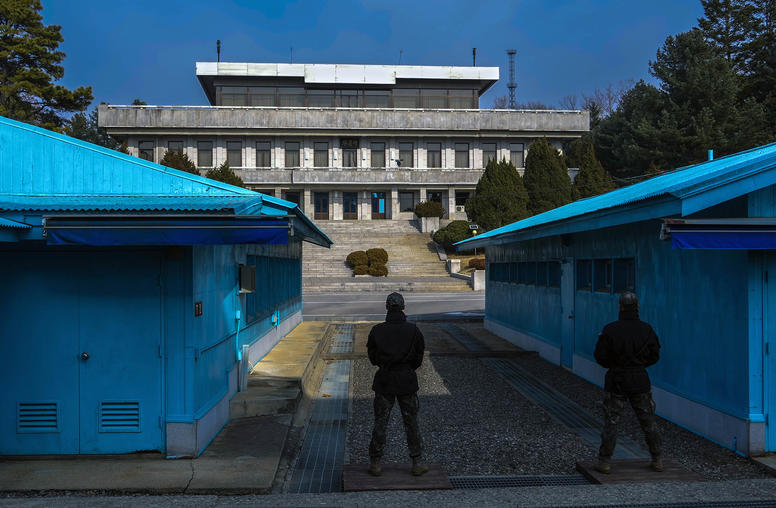Korea: Challenges North and South
The Institute cosponsored an off-the-record policy briefing on Capitol Hill to explore the current challenges posed by recent development on the Korean peninsula.
The Institute cosponsored an off-the-record policy briefing on Capitol Hill to explore the current challenges posed by recent development on the Korean peninsula.

After signing a mutual defense pledge in June, North Korea and Russia relations appear to be deepening. U.S. officials confirmed last week that North Korean troops, including elite special forces, were in Russia for training and potentially combat operations against Ukraine. This represents a “dangerous expansion of the war,” according to U.S. and NATO officials. It could also have serious ramifications for peace and security on the Korean Peninsula. South Korea is concerned that the deployment of North Korean troops could provide them valuable combat and technical experience. Meanwhile, China is watching closely to see what this means for its influence over North Korea and the implications for broader geopolitical tensions with the West.

At the 28th Conference of the Parties to the U.N. Framework Convention on Climate Change in 2023, the United States and South Korea, alongside 18 like-minded countries, endorsed the “Declaration to Triple Nuclear Energy.” By joining the initiative, the countries agreed to augment domestic nuclear energy production to fight climate change and to promote the safe application of civil nuclear energy at home and abroad. As tensions on the Korean Peninsula rise and U.S.-North Korea and inter-Korean relations remain at a stalemate, however, this commitment could also inspire potential engagement with North Korea beyond traditional security dynamics.

Amid today’s renewed great power competition, the Korean Peninsula has entered a new Cold War winter without having enjoyed the spring of the previous post-Cold War era. During the post-Cold War period, the South Korean and U.S. governments anticipated that the seismic changes occurring in Europe would be replicated on the Korean Peninsula. However, over the past 30 years, none of their main policy goals regarding North Korea — such as reform and opening, denuclearization, peace settlement and unification — were fulfilled due to several factors in Northeast Asian geopolitics that favored the status quo. The enduring nature of these factors means the United States and South Korea should adjust their North Korea strategy and goals to enhance peace and security on the Korean Peninsula more effectively.

July 2024 marked the third time South Korean President Yoon Suk-yeol joined a NATO summit along with the leaders of the alliance’s other Indo-Pacific partner countries (Australia, Japan and New Zealand), informally known as the IP4. This represents a new phase in South Korea’s relations with the Atlantic alliance, but building a lasting friendship will take time and requires navigating a series of challenges. Amid an emerging global division of democratic and authoritarian camps and the challenges posed by China and Russia for both the Indo-Pacific and Euro-Atlantic regions, it is incumbent on both Brussels and Seoul to build a more cooperative relationship. That journey, however, has just begun.